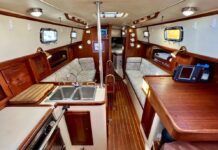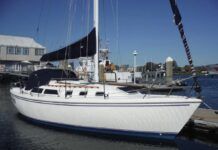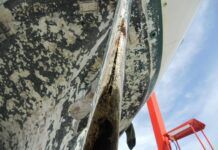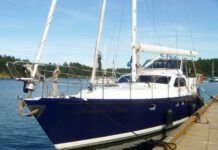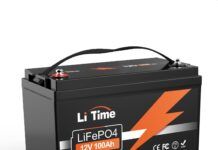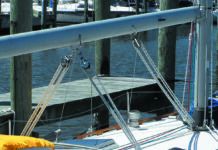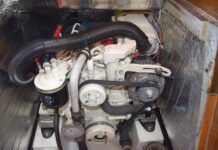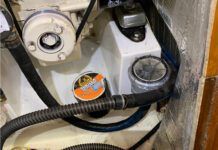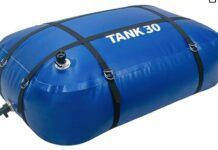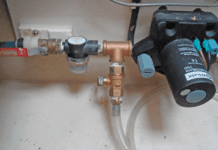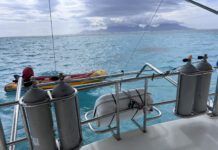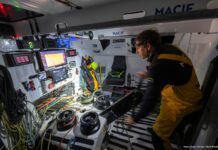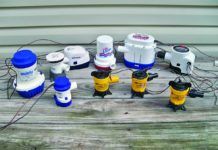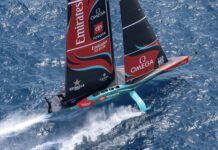Additives can’t solve real gasoline-quality problems. At best, consider additives to be only a final tweaking opportunity, something to supplement the following fuel management practices.
• Fresh fuel: Buy from the busiest fuel dock, preferably one that serves commercial users. A busy service station is good, too.
• Eliminate outside water: Inspect your deck fill annually and replace the O-ring as needed. An 0-ring sealant can help with sealing and prevent seizing. Make sure the vent won’t admit water at any angle of heel.
• Keep a full tank: This is absolutely vital with E-10, because of its potential to absorb water and its increased volatility, compared to conventional gasoline. Half-full tanks will “breathe,” allowing moisture into the tank. Some like to keep only the minimum amount of fuel on hand, in the false belief that they can keep the fuel fresh in this way, but this practice dramatically increases both humidity and oxygen exposure.
• Use your engine: Many sailors pride themselves on running an engine for only a few minutes, just enough to clear the marina. The problem is, the engine never really warms up; it burns only a fraction of a gallon each trip, and the fuel stays in the tanks for a year or more. Ethanol gasoline simply isn’t formulated for that sort of storage life. While additives and a tight tank help, the chemicals themselves are not completely stable, and small tanks (all marine tanks are small from a refiner’s point of view) have a high ratio of fuel to oxygen exposure. You change your oil every year; why not burn some fuel and keep it fresh?
• Fuel/water separators and over-size filters: These deliver valuable protection should you get a bad batch of gas, some water sneaks into your tank, or a sudden drop in temperature induces separation. They give you a means to drain the water while out on the water and get back home.
• Beware of bad alloys: Avoid zinc or Zamak (a common zinc/aluminum/magnesium/copper die casting alloy). These corrode rapidly in the presence of ethanol.
• Use only ethanol rated hose: Cheap fuel hoses may contain polymers that dissolve and deteriorate prematurely.



